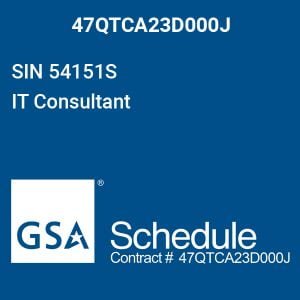Digitization is greatly disrupting mechanisms and functions in various sectors, and the healthcare industry is no exception. Many hospitals have already transformed their paper-based legacy systems to set up electronic health records (EHRs), allowing administrative personnel, nurses, and physicians quick access to medical records whenever they need it.
Yet, the electronic health records are still stored in client-server architectures. The latest solutions have further simplified operations to make them more patient-centric and efficient than before. The most significant improvements have been brought about by healthcare cloud services.
Let’s explore how cloud computing is improving collaboration among healthcare professionals and enhancing the quality of patient services:
Unlock the future of intelligent applications with our cutting-edge Generative AI integration services!
Why Consider Using Healthcare Cloud Services
Simplified Collaborative Patient Care
In the past, workflows in healthcare facilities required each practitioner to store their own record. The system was subject to a lot of issues as the added function to store the data led to inefficiencies among practitioners. The arrival of the cloud means data can be stored, checked, and shared with others online. With only a few clicks, practitioners from anywhere can access patient information.
Multiple doctors can remotely collaborate on a single piece of information to handle cases. This way, leveraging healthcare cloud services has considerably simplified collaborative patient care in the US.
Better Treatment for Patients
Gone are the days when you’d have to stick to a single healthcare center for treatments. Healthcare cloud services have made things more convenient than ever for patients. With patient information stored on the cloud, doctors from varying hospitals can access the information to serve patients.
A patient who lives in California can attend appointments at different hospitals in the state, obtain prescriptions from various doctors, and conduct and submit tests wherever convenient.
Practitioners at different healthcare facilities can obtain medical insights from prescriptions issued to patients by other physicians. This way, patients should be protected from the over-prescription of medications that may exacerbate their conditions.
With all the patient data available, no single tests will be conducted more than once, saving hospital resources that could be utilized for unnecessary tests.
-
 GSA HACS Principal Security Architect$153.15
GSA HACS Principal Security Architect$153.15 -
 GSA IT Consultant$81.12
GSA IT Consultant$81.12 -
 GSA Cloud DevSecOps Engineer I$71.79
GSA Cloud DevSecOps Engineer I$71.79
Powerful Analytics
Healthcare data is more precious than you can imagine. Cloud computing allows you to gather and compute patient data obtained from various sources. The application of artificial intelligence algorithms and big data analytics on the cloud-stored patient data should boost medical research. The processing of large data sets should now be feasible with the cloud’s advanced computing power.
According to the 2019 healthcare predictions report by Gartner, artificial intelligence is rapidly making its way into mainstream healthcare operations. With more and more cloud platforms integrating machine learning and AI in their solutions, cloud computing has proved to be a tremendous way to manage massive amounts of data leveraging healthcare cloud services for digital transformation.
Analyzing patient data should also help your organization build more personalized care plans for individual patients. It can also prove an insightful source of information for subsequent prescriptions to the same or new patients.
You should be able to figure out what’s working for your patients and what’s not, thereby improving your decision-making. This should result in improved service, attracting more patients through referrals and word-of-mouth.
Incredible Scalability
One of the biggest issues with conventional self-hosted platforms is their poor scalability. Cloud computing has provided healthcare providers with an incredible amount of flexibility to upscale or downscale their data storage based on the patients’ flow.
This means healthcare facilities can now adapt their systems to peak seasons when the volume of patients is extremely high, such as a flu season or during a pandemic. Hence, you no longer need to waste time, money, and effort in purchasing hardware or software updates. Get in touch with Cloud Computing Technologies to get a highly scalable cloud solution.
Cost-Effectiveness
One of the biggest challenges across all industries is tight budgets. The bulk of healthcare IT budgets are typically absorbed into running and maintaining existing systems, leaving few resources for innovation.
With subscription-based cloud models, they no longer need to invest in expensive equipment and systems. Cloud providers provide them with high-quality services on pay-as-you-go models. Then savings can then be invested in innovative plans.
You have three cloud computing options that help transform healthcare:
- Software as a Service: This includes on-demand hosted services, ensuring speedy access to applications to manage relationships with patients.
- Infrastructure as a Service: This includes on-demand, large scale storage, and computing healthcare facilities.
- Platform as a Service: This can be a valuable security-enhanced environment for the deployment of cloud apps and web-based services.
Security
Another valid concern for healthcare providers is how secure is patient and other data in a third-party server. They need to ensure compliance with regulatory frameworks such as the Health Insurance Portability and Accountability Act (HIPAA) for safe data portability and the HITRUST Alliance’s CSF, a certifiable standard to safeguard sensitive data.
Cloud servers provide unprecedented security to healthcare providers. They offer automated backups and robust disaster recovery solutions. This way, healthcare providers don’t lose any data in case of data breaches. Plus, the downtime is also minimal for the staff in the event of failures.
As opposed to this, on-premises solutions can lead to serious problems for a healthcare facility as well as its patients. They risk losing all data and applications if the equipment fails.
Final Word for Leveraging Healthcare Cloud Services
Technology is rapidly penetrating the healthcare industry, shaping processes, and the way patients are treated. Healthcare cloud services have made some massive changes in the sector, helping hospitals grow at exponential rates. If you want to achieve the above-discussed benefits of healthcare cloud services, reach out to Cloud Computing Technologies.
We, at Cloud Computing Technologies, can help you digitize your patient care processes and enhance the quality of healthcare. Our cloud experts have been serving doctors for a while now and are familiar with the most common bottlenecks in healthcare systems. They’re trained to offer some of the best solutions to improve your efficiency and reduce expenses.
For a no-obligation consultation session, Dial now on 1-800-804-9726.
Further blogs within this Leveraging Healthcare Cloud Services category.

